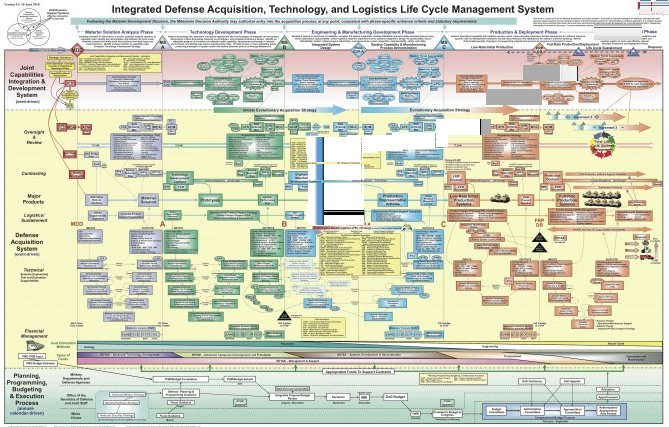President Obama’s Science Czar John Holdren is worried about global warming. Having noticed that there hasn’t actually been any global warming since 1998, he feels it ought to be called “global climate disruption” instead. That way whether it gets warmer or colder, wetter or drier, less climatically eventful or more climatically eventful, the result will be the same: it can all be put down to “global climate disruption.”
And that will be good, because it will give Holdren the excuse to introduce all the draconian measures he has long believed necessary if “global climate disruption” is to be averted: viz, state-enforced population control; a rewriting of the legal code so that trees are able to sue people; and the wholesale destruction of the US economy (“de-development” as he put it in the 1973 eco-fascist textbook he co-wrote Paul and Anne Ehrlich Human Ecology: Global Problems And Solutions).
Holdren is not the only person having problems with the “world not warming and everyone growing increasingly sceptical” issue. So too is Dave “Grocer” Cameron’s excuse for a government. Its solution? Work out ways of brainwashing the populace with state-funded propaganda.
James Delingpole, “Global warming is dead. Long live, er, ‘Global climate disruption’!”, Telegraph.co.uk, 2010-09-17
September 17, 2010
QotD: Goodbye “climate change”, hello “global climate disruption”
Duelling camo patterns
A brief outline of the US Army’s quest to find better camouflage patterns for troops in the field:
While the MultiCam was an improvement on the older ACU pattern uniforms, the troops did not get new packs (which also use cano pattern cloth) at the same time they received the MultiCam uniforms. Thus when troops went off into the hills, the combination of MultiCam uniforms and ACU pattern packs do a lot to ruin the camouflage effect.
The U.S. military has been having a tough decade when it comes to camouflage uniforms. Since September 11, 2001, the U.S. Army has changed camouflage patterns for their combat uniforms twice. First it was the adoption of digital patterns, then the current move to MultiCam.
It was SOCOM (special operations command) troops who first had second thoughts about the older digital camo pattern. The digital camouflage pattern uses “pixels” (little square or round spots of color, like you will find on your computer monitor if you look very closely), instead of just splotches of different colors. Naturally, this was called “digital camouflage.” This pattern proved considerably more effective at hiding troops than older methods.
For example, in tests, it was found that soldiers wearing digital pattern uniforms were 50 percent more likely to escape detection by other troops, than if they were wearing standard green uniforms. What made the digital pattern work was the way the human brain processed information. The small “pixels” of color on the cloth makes the human brain see vegetation and terrain, not people. One could provide a more technical explanation, but the “brain processing” one pretty much says it all. Another advantage of the digital patterns is that they can also fool troops using night vision scopes. American troops are increasingly running up against opponents who have night optics, so wearing a camouflage pattern that looks like vegetation to someone with a night scope, is useful.
September 16, 2010
QotD: Trial By Jury
In 1850 Spooner published A Defence for Fugitive Slaves, Against the Acts of Congress on February 12, 1793 and September 18, 1850, where he argued that juries “are judges of the law, as well as the fact” and are therefore justified in nullifying federal fugitive slave laws. “No man can be punished for resisting the execution of any law,” Spooner wrote, “unless the law be so clearly constitutional, as that a jury, taken promiscuously from the mass of the people, will all agree that it is constitutional.” Today we call this radical approach “jury nullification.”
Two years later, in Trial by Jury, Spooner developed his argument in full, expertly tracing the right of jury nullification back to the Magna Carta. “It is indispensable that the people, or ‘the country,’ judge of and determine their own liberties against the government,” he wrote. “How is it possible that juries can do anything to protect the liberties of the people against the government; if they are not allowed to determine what those liberties are?” According to Spooner, it was essential to distinguish between trial by jury, which meant trial by the people, chosen by lot, and trial by government, which was an illegal usurpation of the people’s power. “If the government may decide who may, and who may not, be jurors,” he wrote, “it will of course select only its partisans, and those friendly to its measures.” Furthermore, he said, if the government had its way, it “may also question each person drawn as a juror, as to his sentiments in regard to the particular law involved in each trial…and exclude him if he be found unfavorable to the maintenance of such a law.”
Of course, that’s exactly what happens today when potential jurors who oppose the death penalty are prevented from serving on death penalty cases or when those who oppose drug prohibition are excluded from drug cases, thereby stacking the jury in the government’s favor. As Spooner presciently observed, “if the government may dictate to the jury what laws they are to enforce, it is no longer a ‘trial by the country,’ but a trial by the government.”
Damon W. Root, “Clarence Thomas’ Favorite Anarchist: The radical anti-statism of Lysander Spooner”, Reason, 2010-09-16
Army, RN, RAF, and Trident replacement: pick any three
The British coalition government has declared that they will retain the nuclear option (that is, buy replacements for their current Trident submarines), but still seem to think that you can take £20bn from the Defence budget (in addition to the 10-20% savings you’re already demanding be made) and still have three viable services. Perhaps it’s a strange form of new math:
The £20bn replacement of the UK’s Trident nuclear deterrent could be put off until after 2015, according to reports.
The BBC said ministers were considering delaying the planned 2014 date in an effort to reduce short-term costs and head off a pre-general election political row.
The Ministry of Defence (MoD) said no decisions had yet been taken on the future of the submarine-based missile system, which is currently the subject of a value-for-money review.
It has been formally excluded from the ongoing strategic defence and security review (SDSR) but the Treasury has made clear the under-pressure MoD budget will have to pay for it. An influential committee of MPs yesterday warned that that decision would have very significant consequences for future defence spending.
Just as the coalition took office, it was mentioned that the previous Labour government had committed to spend £37bn on various new weapon systems, but had not actually provided the funding to make those purchases. Add a Trident replacement bill on top of that and there is no way to successfully pay the bills out of the current military budget.
There are always economies that can be made in military spending: it’s not unreasonable to assume that savings of 10% can be found in any military force. 20% is pushing the envelope too much unless a scaling-back of commitment is also part of the reduction. 20% cuts, no reduction in tasks, and the Trident replacements (even if you reduce the fleet from four to three) can’t be done.
Update: Lewis Page thinks the Trident replacement is essential:
Proper new Trident, with submarine-launched ballistic nukes, is the right call for the UK. Its cost is tiny compared to UK government spending — just half of a single year’s Department for Work and Pensions budget would buy new Trident boats, arm them, crew them and cover their running costs for decades.
Compared to the MoD’s much smaller budget the costs look bigger, but they are still small — and ICBM submarines represent far and away the best value for money in the MoD. For perhaps £20bn to £30bn in acquisition costs you get an unstoppable, unfindable nuclear hammer capable of shattering a nation in an afternoon. When one reflects that we have spent the same money to get the Eurofighter — a wildly expensive and now rather oldfashioned pure air-to-air platform — new Trident looks like a steal.
One major reason that the Eurofighter is such poor value for money, of course, has been repeated delay so as to achieve short-term savings in the past. This is also true of nearly every other procurement project in the MoD: cumulatively, past politicians failing to grasp nettles are now costing us billions every year. It has to stop, and stop now — as a taxpayer, quite frankly I don’t see why I should pay still more billions down the road just to keep Mr Cameron in Downing Street and Mr Clegg in the Cabinet today.
No wonder the government wants to control this information
It’s obvious why: it contradicts the deeply held religious convictions of certain members of cabinet . . . that the Earth is just over 6,000 years old:
This week, we learned more details of how the federal government systemically muzzles its scientists on controversial issues such as climate change and the oilsands. The revelations reinforced complaints contained in an Environment Canada document leaked last March pointing out how senior scientists had to seek permission from their political bosses before speaking to reporters. “Our scientists are very frustrated with the new process,” said the document. “They feel the intent of the policy is to prevent them from speaking to the media.”
In one recent example, a scientist wasn’t allowed to talk to reporters until after the request had been funnelled through communications managers, policy advisers, political staff and senior advisers. And that was for a non-controversial report dealing with a flood that swept across Canada 13,000 years ago.
Andrew Weaver, an outspoken climate scientist at the University of Victoria, has called the Canadian government cone-of-silence policy “Orwellian.”
See, it couldn’t possibly have happened, because the Earth hadn’t been created yet, dummy!
H/T to Colby Cosh.
Christchurch: that shaky town
To get an idea of what the poor folks in Christchurch are still going through, here is a visualization of the 664 tremors (to date):
Click here to see the full series.
H/T to Nelson Kennedy for the link.
September 15, 2010
Recognize your password?

Password Authentication Tag Cloud
Earlier posts on this topic: Passwords and the average user, More on passwords, And yet more on passwords, and Practically speaking, the end is in sight for passwords.
H/T to Bruce Schneier for the link.
Think of coach seating as “cattle class”?
If you thought it wasn’t possible to make air travel even worse, you just don’t think big enough:
Italian company Aviointeriors showed off its new “Skyrider” seat at an airshow in California. The curious-looking seats have just 23-inches of space between the seat and the row in front of you. Current airline seating configurations gives you a seemingly spacious 30-inches or so.
I’ve pretty much given up on air travel already, except for trans-Atlantic flights, but this little innovation would probably make me look for steerage class bookings on freighters . . .
Will Old Spice parodies be the Downfall of 2010?
H/T to Rob Beschizza for the link.
The real results of Turkey’s referendum
Austin Bay is still hopeful for a secular Turkish government, but the results of the recent referendum don’t encourage quite as much hope:
Turkey’s leading political organizations both portray the choice between them as “either us or darkness.” This rhetorical demonization is typical of successful democracies. Ataturk deserves credit for establishing a democratic structure that survived his death in 1938 by 72 years.
Turkey’s actual circumstances, however, are much more complex and murky. Start with the referendum’s irony. The constitution had many undemocratic articles and was in fact imposed by the military after a coup in 1980. The European Union ruled that many of these elements did not meet EU membership standards. Thus the ironic situation of an Islamist political party promoting constitutional changes in order to meet Western European democratic standards. Aligning Turkey with Europe was one of Kemal Ataturk’s long-term goals.
Yet the judicial reforms approved this week may be an anti-democratic trap door, for they give the AKP the ability to limit systemic checks and balances on executive power. The AKP can pack the courts. The judiciary has protected the Turkish military. The AKP distrusts the military because it fears a coup, and with good reason. The military sees itself as the protector of the secular state and a bulwark against Muslim fundamentalist usurpation.
Fantasy football strategies
I’ve been participating in simple fantasy football pools for a while, although the closest I’ve come to winning was a tie for second place in the first year I took part. Picking winners and losers isn’t too hard — except when lots of upsets occur (see, for example, opening weekend this year) — but picking against the spread is much tougher. If you’re not doing as well as you’d like in your fantasy football picks, Gregg Easterbrook has a formula you might be interested in trying:
The Isaacson-Tarbell Postulate, proposed by TMQ readers Eric Isaacson of Indiana University and Catey Tarbell of Kirkland, Wash., holds: Best Record Wins Unless Records Equal, Then Home Team Wins. If you’d picked 2009 NFL games using this simple algorithm, you would have picked 167 of 267 contests correctly, a better performance record than many professional touts. The Isaacson-Tarbell Postulate is a huge time-saver because you don’t have to think about picks — you don’t even need to know who’s playing! Eric and Catey’s system works well except in the first week of the season, when the formula simply chooses the home team, and in Week 17, when many winning teams have locked in their highest seed and are resting starters. So last year I tested a Transformed Isaacson-Tarbell Postulate, which uses the formula except in Week 1 and Week 17; those I forecast the old-fashioned way, by thinking. Using the Transformed approach, I called 174 games correctly. That beat nearly all NFL writers and television personalities; the only one I saw who did better was Pete O’Brien of USA Today, who got 176 right.
This year TMQ will test a new auto-predictor, proposed by Tom Davis of Las Vegas. Davis writes, “A while back you noted in a column, ‘Studies have shown that the prediction most likely to be correct is simply forecasting that existing trends will continue.’ Why not apply this to the NFL? If a team won the previous week, predict them to win the following week; if they lost, predict them to lose again. If you have two teams who won last week or two teams who lost last week playing each other, default to the generic and choose the home team. It’s basically a tit-for-tat strategy, but I’d assume it would be as accurate as any of the ‘experts’ out there. And it does not require time-consuming thinking.”
The Davis Postulate holds: Existing Trends Continue; If Trends Same, Home Team Wins. I will track games using this predictor and also using a Transformed Davis Postulate in which I predict the first and final weeks of the season the old-fashioned way, by thinking.
I went 9-7 on the opening weekend (could have gotten 10, but I always take the Vikings to win). I may try the Isaacson-Tarbell Postulate this week, to make up lost ground.
September 14, 2010
When the bureaucracy strangles its young
Noah Schactman uncovers the reason it takes a decade for the Pentagon to buy new weapons:
And you thought winning the Afghanistan war was tough. Try building the Army’s new armored vehicle. Or piecing together the Navy’s new network.
All of the complexity of the Afghan conflict — and all of the bureaucracy NATO used to manage the counterinsurgency effort — was summed up by a single spaghetti monster of a PowerPoint slide. “When we understand [it],” war commander Gen. Stanley McChrystal joked when he saw the slide, “we’ll have won the war.”
But that slide was child’s play compared to the three-foot wall chart the military uses to explain its gajillion-step process for developing, buying, and maintaining gear. The “Integrated Acquisitions Technology and Logistics Life Cycle Management” diagram is kind of a precis to the whole interminable progression, from “decompose concept functional definition into component concepts & assessment objective” to “execute support program that meets materiel readiness and operational support performance requirements and sustains system in most cost-effective manner.” Stare long enough, and you’ll start to see why it takes a decade for the Defense Department to buy a tanker plane, or why marines are still reading web pages with Internet Explorer 6.
The chart is put out by the Pentagon’s Defense Acquisitions University, where the Pentagon educates 180,000 people a year on its, um, unique process for purchasing equipment.
Full-sized horror of the slide at the link. If you think you can survive the insanity of it.
September 13, 2010
QotD: An alternate history we might have suffered
Thought experiment: imagine an Internet in which email and web addresses were centrally issued by government agencies, with heavy procedural requirements and no mobility — even, at a plausible extreme, political patronage footballs. What kind of society do you suppose eventually issues from that?
I was there in 1983 when a tiny group called the IETF prevented this from happening. I had a personal hand in preventing it and yes, I knew what the stakes were. Even then. So did everyone else in the room.
Thought experiment: imagine a future in which everybody takes for granted that all software outside a few toy projects in academia will be closed source controlled by managerial elites, computers are unhackable sealed boxes, communications protocols are opaque and locked down, and any use of computer-assisted technology requires layers of permissions that (in effect) mean digital information flow is utterly controlled by those with political and legal master keys. What kind of society do you suppose eventually issues from that?
Remember Trusted Computing and Palladium and crypto-export restrictions? RMS and Linus Torvalds and John Gilmore and I and a few score other hackers aborted that future before it was born, by using our leverage as engineers and mentors of engineers to change the ground of debate.
[. . .]
Did we bend the trajectory of society? Yes. Yes, I think we did. It wasn’t a given that we’d get a future in which any random person could have a website and a blog, you know. It wasn’t even given that we’d have an Internet that anyone could hook up to without permission. And I’m pretty sure that if the political class had understood the implications of what we were actually doing, they’d have insisted on more centralized control. ~For the public good and the children, don’t you know.~
So, yes, sometimes very tiny groups can change society in visibly large ways on a short timescale. I’ve been there when it was done; once or twice I’ve been the instrument of change myself.
Eric S. Raymond, “Engineering history”, Armed and Dangerous, 2010-09-12






